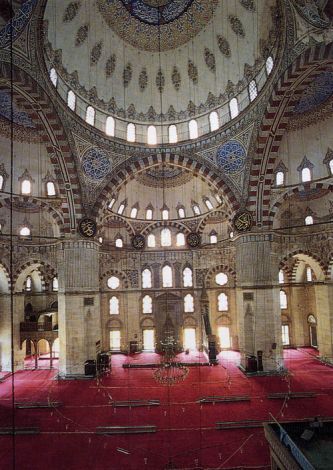Yusuf Ziya Ortaç
YUSUF ZİYA ORTAÇ (1895-1967)
Yusuf Ziya Ortaç who was born in Istanbul in 1895, wrote under various aliases such as Arif Ünlü, Çimdik, İzci, Kamber, Sarı Çizmeli Mehmet Ağa, and Yakuboğlu Işık. Ortaç, whose father was an engineer, received a teaching certificate from the Darülfünun Faculty of Letters, and worked as an instructor for various foreign schools in Izmit and Istanbul. He published a short-lived magazine named Şair, and went on to publish the magazine Akbaba for 45 years, one of the most long-lived publications in the history of the Republic. In 1946, he entered politics under the Republican People’s Party, and was eventually elected as a representative from Ordu. He served in the Turkish parliament until 1950, when he lost the election, and then he returned to directing his magazine.
Upon the encouragement of the famous man of letters of the era Ziya Gökalp, Yusuf Ziya Ortaç started his literary career with poems that he wrote in the Aruz meter. After publishing in the periodicals Türk Yurdu, Servet-i Fünun, Büyük Mecmua, İnci and in his own magazines, Yusuf Ziya Ortaç earned great respect in literature circles. His humorous anecdotes and writings that appeared in the newspapers
İkdam ve Cumhuriyet attracted as much attention as his poetry. He is the fifth member of the group of Turkish poets known as the “Five Syllabists” which included
Faruk Nafiz Çamlıbel, Enis Behiç Koryürek, Orhan Seyfi Orhon, and Halit Fahri Ozansoy. The “Five Syllabists” were influenced by the national literature movement and they used the syllabic meter in their poems. The group started writing in World War I and in the Turkish War of Independence. Their first poems feature the Aruz meter, but later on, they started using the syllabic meter. They preferred writing poems that were plain, and unaffected, and they avoided ornamented language. They used themes such as the patriotism, the beauties of the fatherland, heroism, and bravery. They sought out new forms and did not adhere to four-line stanzas. In their poems, they used sentence style and syntax that belonged to prose.
Yusuf Ziya Ortaç wrote his poems in a plain, beautiful, and elegant Istanbul Turkish. He also composed works in other genres such as jokes, humor, stories, novels, verse stories and drama. His play
Binnaz, in which he recounted an event from the Lale Devri, was one of the most acclaimed works of the period both because of the natural and plain language used and the dramatic technique. It was praised as being “the triumph of the syllable.” In later years, the author started writing humor, and produced successful works in this genre as well. In addition, Yusuf Ziya Ortaç wrote drama criticism pieces in the magazines
Akşam,
Alemdar,
Zaman,
Temâşâ and
Türk Yurdu, and he wrote memoirs that documented the lifestyle of the period. Ortaç was a journalist, poet and author, but was better known in his own time as a politician, and magazine owner. The director Ahmet Fehim made his work
Binnaz into a movie in 1919.
Yusuf Ziya Ortaç died on March 11, 1967 in Istanbul.
Yususf Ziya Ortaç's Works:
Research-Study: Gazali’nin İktisat Felsefesi (Philosophy of Economics by Gazali, 1984), Gazalî: Hakikat Araştırması - Felsefe Eleştirisi ve Etkisi (Gazali: Reserch of Reality – A Critic and Influence of Philosophy, 1986), İktisat Tarih ve Toplum (Economics, History and Society, 2001).
Edition (As An Editor): Bilgi, Bilim ve İslam (Information, Science and Islam, 1987), Para, Faiz ve İslam (Money, Interest and Islam, 1987), Türkiye’de Zekat Potansiyeli (The Potential of Offering in Turkey, 1987), İşçi-İşveren İlişkileri (Relations Between Employers and Employees, 1990), Modernleşme, İslam Dünyası ve Türkiye (Modernization, Islam World and Turkey, 2001).
* Biographical information concerning Yusuf Ziya Ortaç has been gathered from Tanzimat’tan Bugüne Edebiyatçılar Ansiklopedisi.
Reference: Yesim Gokce (Bilkent University) / Turkish Cultural Foundation.
Some selected examples (please click on pictures to enlarge):









